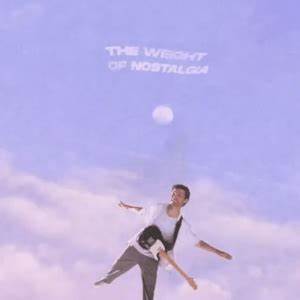I spent a few days in London last week. As is my wont, I spent a good part of the short stay to take in the cultural richness of the British capital, especially to indulge my eternal taste for books and music. It is one of the facts of our lives, that there is easier access to the great products of human culture or human accomplishments, in the great cities of the imperialist world, like London, New York, Paris or Berlin. During the 1970s and 1980s, it was still relatively easy to get access to the great books of our world, in Nigerian bookshops, especially the university bookshops, such as those at Ibadan, Lagos, Zaria and Ile-Ife. I remember that I bought the 45-volume collected works of Lenin from the Ahmadu Bello University, in 1982. I still remember vividly, the relish with which my comrades and I, unloaded the entire collection from the trunk of a car. I bought so many wonderful books from the university bookshops at Ibadan; not to talk of those volumes of books from the residence of the late comrade Ola Oni, off the Peter and Paul seminary in Ibadan. Books helped us to make the essential link with human civilization, and Nigerian publishing made a major effort during those years as well. I think one of the most prized possessions that I have now, are old copies of NIGERIA MAGAZINE from so many, many years ago and those wonderful copies of the Journal of the Historical Society of Nigeria(JHSN); not to forget the African Writers’ Series, which opened up the vistas of Africa contributions to the treasure house of human culture. Those were truly liberating days in our lives, because they went in tune with the struggle against colonialism and the achievement of independence. The right to conquer the space of culture, or the spaces of history and of literature, were some of the most important achievements of African liberation. I feel very nostalgic about those experiences, because they helped to shape the persons that we eventually became. Unfortunately, we have substantially lost most of these treasures today. With the economic crisis of the mid-eighties and the implementation of IMF/World Bank structural adjustment policies, there was a gradual erosion of the entire political economy and the super structural riches of culture: publishing shrunk to near extinction; writing became very difficult and the best brains gradually abandoned the increasingly authoritarian ambience. As culture and knowledge beat a retreat in our societies, the forces of obscurantism, chauvinism and dictatorship took over the vacated spaces and consolidated a suffocating hold on the minds of the people. The late Professor Edward Said, the Palestinian intellectual, talked about the reign of the new illiteracy which has become the hallmark of the internet age. I think it has caught up with us too in a most alarming sense. So it is, that whenever I travel around the world, what I do is to visit the bookshops and record stores and other cultural sites of these countries. It is one of the reasons that I enjoy visits to London; during the few days I stayed, I bought twelve new books, ranging from a juicy biography of Omar Khayyam to a biography of Hugo Chavez, a collection on Israel’s summer 2006 war on Lebanon and a few other useful pieces. I also placed an order for other books (about fifteen in all) and films by Sembene Ousmane as well as the old Carl Sagan documentary, COSMO. I stocked up on a huge collection of CDs, ranging from Louis
Armstrong, Nat King Cole through to Franco, Youssou Ndour, and an obscure Touareg group from Agadez in Niger! What on earth can I do without music? A lot of people from the Kwara State area, especially from the late 1970s, and early eighties, would probably remember that I was a disc jockey on radio for many years. We took the art of the disc jockey to a new level, by subverting the idiom to post socially-relevant messages! The theme of nostalgia is strong for me this week, because during my stay in London, I visited a Nigerian restaurant/club house, known as EMUKAY in the area of the city. It is run by veteran Nigerian artist, Tunji Oyelana and his wife. I had heard so much about that small space which nevertheless gives so much to a Nigerian diaspora community, most of whom are between forty and sixty years, who long for the sounds and tastes of a homeland which they left for a variety of reasons. They eat pepper soup, ishiewu, rice and tilapia fish source and these are washed down with gulder, star, Guinness and that wine which reflected the affluence of the seventies and eighties, Mateusz Rose! The music was also poignant: the folk songs that were part of the popular repertoire of Tunji Oyelana himself as well as adaptations of other well-known Nigerian songs from the 1960s. Exile, in whatever form it comes, should be one of the most difficult experiences of a human existence. In recent weeks, I have a read a lot of the reflections of Professor Edward Said on this subject, and as I watched members of the Nigerian diaspora dance through the two evenings that I visited EMUKAY, the poignancy of being torn from familiar sounds and sights hit my consciousness very frontally. Here were people who long very deeply for the familiar surroundings of their country and
homesteads, but who might not even be able to return to those surroundings anymore! They make do with a substitute, a poor second best, by bunching together for a few hours within the narrow confines of a small restaurant/club house to catch a whiff of that homeland which they miss so much. That fantasy helps to console their souls for a few hours, before returning with a thud, to the existential realities of their exile, the following day. I have seen this type of experience in other settings in other parts of the world. In 2006, I was in the Sudan, and we spent a couple of hours with the Northern Nigerian Diaspora in Khartoum, many of whom got to the Sudan attempting to perform the pilgrimage to the Holy places of Islam. They never got to Saudi Arabia, but became struck in the Sudan. The most important thing for them became the longing for the Nigerian homesteads they left behind! In a very fundamental sense, I think nostalgia is one of the most powerful motive forces of human experience in our world. Sometimes, I find myself remembering an obscure event from childhood or adolescence, and get to transpose that with the lived experience of today. For example, in recent weeks, I have thought quite a lot about how central the railway station was in the social life of the nineteen sixties. A trip by rail, for any member of our family, took us to the railway station, which had the uniqueness of being the well-lit surroundings in a town with very few street lights. The experience of train journeys expanded the horizon and linked one to life in other parts of our country. It was one of the interesting ironies of life that the railways which were constructed to facilitate the exploitation of the resources of our country eventually became the vehicle which transported people and anti-colonial ideas around our country and in the process assisted in the building of patriotic ideas which facilitated national independence. Unfortunately, the post-colonial state could not guarantee the continued efficient operation or the modernization of those railways. A road transportation lobby also provided fuel for their incineration, and in the transfer of allegiance to road transportation, we harvested the death of a
railways culture. If there was a railways journey that has stayed fresh in my mind, it was one that I undertook in 1975. The NEW NIGERIAN newspaper used to carry a daily advertisement from Harmony Stores in Zaria, which stocked high-heeled shoes. I will check those advertisements regularly in our school library, because those were the reigning shoe styles, and the pop stars of the period, such as David Bowie, were models of such shoes. During the summer holiday of 1975, my father gave me money to buy whatever I wanted in appreciation of my performance at school. Off to Zaria I went by rail, and the famous Harmony Stores. I went back overnight by rail to Ilorin, a very proud owner of those platform shoes; but my mother was scandalized, as I arrived home like a masquerade on stilts! Deep in my mind, I felt I was the expression of the last word in fashion, which an old-fashioned mother could just not fathom. I look back over that episode now, and just laugh. It’s a funny old world isn’t it? Last week’s visit with members of the Nigerian diaspora has only brought forcefully to me, the weight of nostalgia in our lived experiences.


